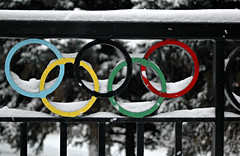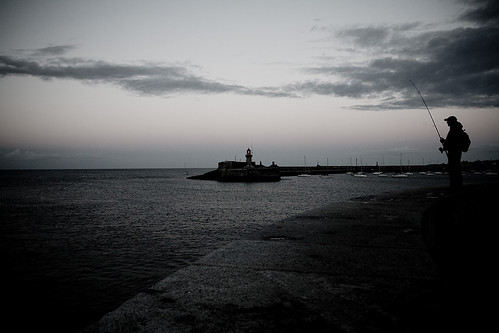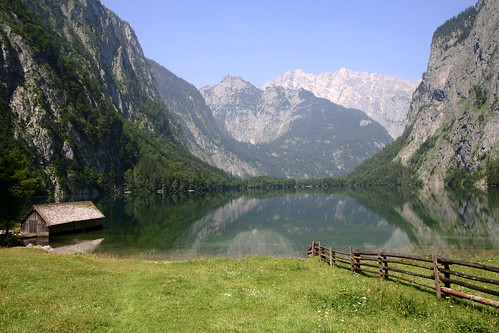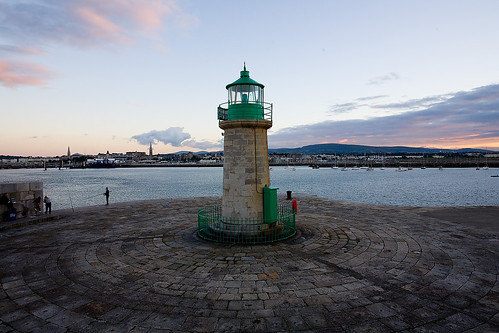Wednesday, August 27, 2008
How to sell ice cream
Sunday, August 24, 2008
Festival of World Cultures

Sax on the coast

A very long Teddy's queue!

A well populated peoples' park


Lots of interesting instruments on display!


Please buy our CD!

There were topless drummers...

...and barefoot dancers

And even sand sculptures!
Saturday, August 23, 2008
tea and scones anyone?


From a lovely little café in Chester. Was away last week, and will be next week, so the posts will be sparse for a little while!
Saturday, August 16, 2008
Nuke the Polish
 olish. More than the regular variety of threat that is; according to the Guardian, they have "reserved the right" to launch a nuclear attack on Poland if they agree to host US rockets. Just an idle comment? Something twisted by a paper looking for a sensational angle? Sadly not. A senior general has (no doubt with political approval) been quoted as saying
olish. More than the regular variety of threat that is; according to the Guardian, they have "reserved the right" to launch a nuclear attack on Poland if they agree to host US rockets. Just an idle comment? Something twisted by a paper looking for a sensational angle? Sadly not. A senior general has (no doubt with political approval) been quoted as saying
"By deploying, Poland is exposing itself to a strike - 100%,"
And went on to add, as if that wasn't clear enough, that
Russia's security doctrine allowed it to use nuclear weapons against an active ally of a nuclear power such as America.
A little worrying that. Generally, invading your neighbours is considered to be slightly bad form, but blowing them up altogether really isn't looked upon kindly. Russia have been flexing their muscles like an Olympic greco-roman wrestler for some time now, resuming long-range bombing flights and making noises about, well, just about everything. That they have progressed to using their military instead of their press department is deeply worrying, and should not go unchecked by the international community.
I think the Economist are on to something when they talk about increasing the power of the G7 to the exclusion of the Russians and preventing their progress in attempting to join the WTO. While the Guardian are right to a certain extent that
"Western governments should think long and hard before enacting measures to exclude Russia from the international arena"their assertion that
"NATO members.... should rebuild, extend and enforce Russia's international obligations. They should not be wilfully tearing them down."seems to totally ignore the situation on the ground. Allowing Russia to join the in with the G8 and movements towards allowing them to join the WTO were both based on them acting responsibly and becoming more democratic and accountable. When they move in entirely the opposite direction, it seems rather silly to reward them for their behaviour. Their newfound buoyancy is based around a massive influx in oil and gas revenue. Their reliance on natural resources makes them vulnerable to trends in the global markets, and therefore more susceptible to international pressure.
That seems to be the line that America are taking, with Bush making a reference to the G7's role in a speech yesterday. There is a bizarre brand of Anti-Americanism which derides America no matter what they do, good or bad. It was in evidence on the Drive Time radio panel yesterday, with one of the panelists asking ''why do we allow America to say they're the world's policeman in these kinds of situations''. (The same woman moments later deriding Bush's trip to China and his failure to stand up for human rights) What the world should really be asking for is decent leadership and a way to help bring to an end, or at the very least minimise, Russia's aggression towards their neighbours. Unless there are consequences for their actions, that's highly highly unlikely to happen.
Obama the celebrity, McCain the thief?
 As a photographer, I have an interest in copyright. Because I post images on the web, there's always a chance of somebody taking them without permission. It's happened a couple of times, and when I find out about it, I tend to be more than a little annoyed. (UCD found this out to their detriment when they used several of my images in their prospectus). Today I saw an interesting article over at Wired, which discusses the Ohio Republican party's unauthorised use of Jackson Browne's Running On Empty in a campaign ad. It seems that if the judge finds in his favour, there could be a large payout in the offing. For someone who is running with Law & Order and free market principles as his major policy planks, stealing somebody else's work to promote your own image when they have endorsed your opponent probably isn't the smartest move.
As a photographer, I have an interest in copyright. Because I post images on the web, there's always a chance of somebody taking them without permission. It's happened a couple of times, and when I find out about it, I tend to be more than a little annoyed. (UCD found this out to their detriment when they used several of my images in their prospectus). Today I saw an interesting article over at Wired, which discusses the Ohio Republican party's unauthorised use of Jackson Browne's Running On Empty in a campaign ad. It seems that if the judge finds in his favour, there could be a large payout in the offing. For someone who is running with Law & Order and free market principles as his major policy planks, stealing somebody else's work to promote your own image when they have endorsed your opponent probably isn't the smartest move.
Thursday, August 14, 2008
The Olympics revisited
A senior official for the Beijing Olympics today criticised parts of the
international media for coming to China "to peak, to be critical, to dig
into the small details and find fault" in the country's human rights
record. (guardian)
It's that kind of continuous questioning that I was talking about in my post. I firmly believe that a similar amount of attention and pressure would not have been applied if everyone had simply not turned up.
Monday, August 11, 2008
okie-doke
 I spied the current issue of the RTE guide in the shop at lunchtime, which boasts an 'exclusive' at home interview with Bill O'Herlihy. It got me wondering if there was a bidding war akin to the one for Brad Pitt and Angelina Jolie's twins. What do you reckon the going rate for a Bill exclusive is these days?!
I spied the current issue of the RTE guide in the shop at lunchtime, which boasts an 'exclusive' at home interview with Bill O'Herlihy. It got me wondering if there was a bidding war akin to the one for Brad Pitt and Angelina Jolie's twins. What do you reckon the going rate for a Bill exclusive is these days?!
The king's trophy
There is a huge love of the king in Thailand, which is somewhat alien to me, and very disconcerting when you first arrive. His image is on every street corner, and many people wear clothing in his honour. In the cinema you are greated by the royal anthem where everyone stands to the king's honour before the showing. (For any of the Irish, this was described accurately by a friend of mine as a bizzare version of the Angelus).
I think it's interesting that he's such a focal point. For a country that has experienced much instability over the last 60 years, he has been a constant, so I think that's the main reason.
You're probably wonderng what that has to do with this photo; the trophy was blessed and presented to the organisers of the world debating championship by the king, which to them (and the winners) was a rare honour in Thailand. This is that trophy.
Friday, August 08, 2008
Will Ferrell

This is one from when Will Ferrell came to the L&H earlier on this year to receive a James Joyce award. It was a great night with him giving a 30 minute stand up routine. I was in the press room when he was wearing a suit beforehand, but had a champions sports bag with him. One of the reporters asked him what was in it, and he said it was "just a new pair of sneakers". Turned out it was a full Irish rugby kit! My favourite quote of the night was his reflections on the James Joyce award:
“As I perused my leather bound volumes of Ulysses, Finnegan's Wake, Dubliners, and Portrait of the Artist as a Young Man, standing in my mahogany library, a lot of feelings ran across my head, like, man, I should have read these books,”
Legend!
Thursday, August 07, 2008
Wednesday, August 06, 2008
how not to blow up your house
Two ways in which it is possible for young men to set their houses on fire:
1. Make yourself some burgers and do them on the grill. But you don't like cleaning up, it's a waste of your precious tv watching time, so you put some tinfoil on the grill. But you're also a little impatient, so you put the heat up high. A couple of minutes of satisfying sizzling later and that beautiful wafting aroma of cooking meet drifts up. But then some smoke starts to come too. You pull out the grill, and you realise, whoops, the fat from the burgers is a little bit on fire.
Moral: Expend your lungs and open the back door
2. Order pizza from Dominos, and decide, what the hell, you'll get some brownies with it. After your pizza you're a little full, so you wait a while for the brownies. When you get peckish later on in the evening, you chuck the brownies in the microwave; you wouldn't want them cold would you? When you start to hear a strange, distinctly un-brownie-like crackling, you beging to wonder ''is that a blue spark... oh my god, what the hell'' and turn it off very quickly. You open up the cardboard box, and see the sparkling, lightly smoked tinfoil inside.
Moral: Tinfoil, it might just kill you some day
west pier lighthouse
Just another shot from the same night as the one below, this one was taken a little earlier with more light in the sky. It got windy enough that I decided not to stick around until they switched the light on!
Tuesday, August 05, 2008
we've tried everything else, so we might as well sell them cheeseburgers
 There have been cries around the world that China's human rights record means that the Olympics shouldn't be held there, or that we should boycott them now that they are being. I was involved in a debate about the topic myself against an American team (in the air force academy, which is very nice!). Although on that day we were asked to give the arguments in favour of boycotting, I find the other side far more persuasive. (the Americans lost, but that might have been for introducing nuclear was as the end result of a boycott - just a hunch...)
There have been cries around the world that China's human rights record means that the Olympics shouldn't be held there, or that we should boycott them now that they are being. I was involved in a debate about the topic myself against an American team (in the air force academy, which is very nice!). Although on that day we were asked to give the arguments in favour of boycotting, I find the other side far more persuasive. (the Americans lost, but that might have been for introducing nuclear was as the end result of a boycott - just a hunch...)The main reasons that I think that the Olympics being in China is a good thing are as follows:
1. It creates a greater openness. It would be facile to say that the Olympics have improved the lot of ordinary Chinese, theirs being generally left unchanged, and in some cases even damaged. However, the games have brought increased international attention to China's human rights record. For example, both the BBC news and Newsnight led with stories about it yesterday. The Olympics are not, as China would like, just boosting national pride and prestige. With free reporters entering their country, many people are looking deeper than just sport and evaluating China's record. There's a lot more room for improvement, but will only come from greater engagement, not less. One need only look to the examples of North Korea, Burma and Cuba to see that isolating countries is not a very effective way of engendering liberal values. The only way that China will change is with pressure from without and within. The more knowledge there is about the situation on the ground, the more pressure there will be. That pressure can create change because

2. The Chinese government care deeply what people think about them. Their desire to be seen as a decent country has had a positive effect on global affairs in the last couple of years. The notoriously isolationist ''sleeping dragon'' has let out a fiery yawn or two in the direction of tradition allies that have made a big difference. Firstly, they have shifted from their (admittedly reprehensible) original position on Darfur and now support UN intervention. They have also been involved in putting pressure on North Korea to abandon their nuclear programme, and were instrumental in forcing the Burmese to accept international aid following the Tsunami there. While they could do much more on the international stage, these are good signs and should be encouraged. Switching to a more hostile stance as they start to engage more is the worst possible idea.
3. They're here to stay. They've grown 54% since the last Olympics. That bears repeating. In four years, they have added more than 50% to their wealth. That's an astonishing rate of growth. Its continuous re-telling robs it of its impact upon us, but there can be little doubt that China's growth is literally changing the way the world does not business. Many of the people who call for a boycott of the B
 eijing games do so for laudable ideological reasons. However, the chances are that a boycott or shaming of China would damage both them and us. Internally, it would make them more worried about dissent and more likely to crack down, and externally it would deepen their distrust of the global community. Many people have noted that the Olympics are China's ''coming out party'', proudly showing their new face to the world. Much better to welcome them cautiously and press for change than to disengage totally.
eijing games do so for laudable ideological reasons. However, the chances are that a boycott or shaming of China would damage both them and us. Internally, it would make them more worried about dissent and more likely to crack down, and externally it would deepen their distrust of the global community. Many people have noted that the Olympics are China's ''coming out party'', proudly showing their new face to the world. Much better to welcome them cautiously and press for change than to disengage totally.4. Precedent. From Hitler's Germany to Communist Russia, the modern Olympics have not had a stable relationship with democracy, and perhaps they shouldn't. Sport is something transformative which can cross borders and for a fleeting moment unite people in a common bond. When the Koreas walked out under the same flag last time around, it made a huge difference back home to the ordinary Koreans who dream that one day they they need not shout across mine-filled valleys to speak with their relatives. It's worth noting that as the Chinese people have accrued economic rights, their lives have genuinely improved both in terms of their life expectancy, and their freedom to make choices. It's not long ago that Mao decided he knew best how a farm should be run, and condemned millions to their death in the process. Things have slowly got better. By forming the many fleeting and lasting bonds that a large event like the Olympics we can help to show that there is another, better, way possible, and encourage the change in China to continue.
So, enjoy the games, and don't feel too guilty about it!
____________________________________________________________________
As an aside, if you want to check out the Irish medal hopes, check out this excellent blog which will be updated in the coming weeks.
Rings Image: Sherlock 77; the others are mine
fishing at dusk

You might have noticed that there haven't been that many new photos around here lately. That's in part because I've been working away and quite tired, but more so because the weather has been miserable any time I've been around to go out! I thought there was going to be a nice sunset the other night, but it didn't turn out that well. Just took a couple of shots of the glow after it had gone down instead from the West Pier in Dun Laoghaire.
Sunday, August 03, 2008
Bavarian Countryside

This is my most viewed photo on Flickr, it's one of the first ones that comes up when you search for Germany on Yahoo. It's weird how popular it is, because although I like it, I don't really think it's one of my best.
Friday, August 01, 2008
Frakonomics - thoughts
 If you've ever wondered about the link between abortion and crime, the motivations of sumo-wrestling cheats, or how the Superman radio show helped to bring down the Ku Klux Klan, then Freakonomics might just be the book for you. A collaboration between a prize-winning economist (Steven Levitt) and a journalist (Stephen Dubner), it is a very readable trip through some of the odder aspects of human nature, and an attempt to explain them by way of the application of microeconomic theory.
If you've ever wondered about the link between abortion and crime, the motivations of sumo-wrestling cheats, or how the Superman radio show helped to bring down the Ku Klux Klan, then Freakonomics might just be the book for you. A collaboration between a prize-winning economist (Steven Levitt) and a journalist (Stephen Dubner), it is a very readable trip through some of the odder aspects of human nature, and an attempt to explain them by way of the application of microeconomic theory.If that sounds like the dullest possible premise for a book, then you might be in for a bit of a shock. It reads less like a text book, and more like the thoughts of someone who is fascinated by people and seeks to understand them. I enjoyed this book for many of the same reason that I love The Hitch Hiker's Guide to the Galaxy. In it, Douglas Adams manages to pick out little parts of how we behave and make them obvious to us. (for example, the editor of the eponymous guide's decades-long lunch break remind us all of a colleague or two!) It's that kind of insight which this book provides: it takes tiny things that people do and shows their relevancy on a much larger scale.
It is an odd book in many ways, sometimes careering from topic to topic with wanton abandon. As the authors state openly in their introduction, they do not have a unifying theme, which may not appeal to every reader. However, a theme is not necessary for every book, and can sometimes be an unnecessary restraint. Unless you have a particularly deep-seated grudge against short stories or magazines, you shouldn't have too many problems here. When I was reading it, I felt the chapters were like six very well written and accessible journal articles.
As it turns out, that's almost exactly what they are. At its most basic, the book is a popularisation of Levitt's academic work, and interesting work it is to. The most eye catching claim he's made is that the legalisation of abortion is the reason that crime dropped in the mid 90's. The theory goes like this: the people who had abortions after its legalisation tended to be young single mothers who didn't want that child, the very children who are most likely to become criminals. It's quite a compelling thesis, although it has come in for some questioning from other economists. I should point out that they in no way endorse that drop in crime as a reason for allowing abortion (they take no position), but rather just state that it exists. At its most basic the thesis makes a lot of sense. If you abort all the children, there will be a drop in crime. That doesn't mean that you should abort all the children, just that the two have a causal relationship. It's those relationships which the book attempts to explore. If it has any message, it's that the conventional wisdom is often wrong, and that just because a conclusion is startling doesn't mean it shouldn't be discussed.
I had a couple of niggles with the book, the main one being the last chapter which asks whether the names that black parents give their children are economically disadvantageous in comparison with the names white parents give their children. Although it's an interesting question, it is more so in an academic than a general situation, and it reads like that, with lots of tables and not a lot of text. I also think it might have been of more interest to the authors than me, because between them they had six children under the age of six at the time of writing! [as a personal disclaimer I read this chapter while waiting for a blood test, so I concede that might have influenced my mood too!] The other problem that I had was that they sometimes exaggerated just how 'rouge' Levitt's theories are. He won what is effectively the Nobel prize for economists under 40 and is a tenured professor at the Chicago School of Economics, not really the hallmarks of a maverick outsider!
That said, as I try to get my head around Economics before I start my masters, I can't help but think that it could do with more people who write like this. Science has succeeded in bringing its stories to a wider audience in a way that economics certainly hasn't. You don't need to know the intricate details of Newtonian Mechanics to find the story of an apple falling on young Isaac's head interesting. Nor should you need a Ph.D in advanced econometrics to find it fascinating that most drug dealers still live with their mothers, swimming pools kill more kids than guns in the U.S., and that the school a child attends makes only a tiny difference to their academic performance.
Image: Penguin celebrations cover, Freakonomics site





